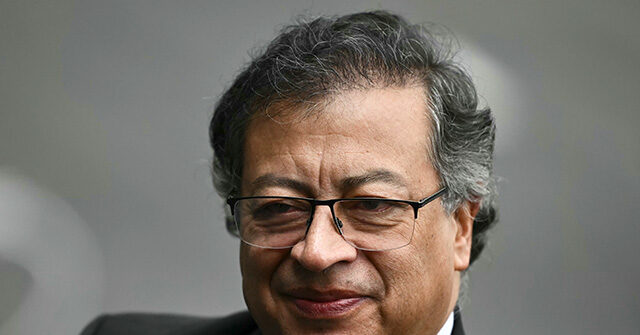On Tuesday, Colombia’s National Electoral Council (CNE) announced an investigation and subsequent charges against President Gustavo Petro and his 2022 presidential campaign for alleged violations of campaign spending laws. The CNE claims that Petro’s campaign exceeded established spending limits and accepted prohibited contributions from legal entities, violating Colombian law. In response, Petro has characterized the investigation as an attempted coup against his leftist government, insisting the charges are politically motivated and unfounded.
Gustavo Petro, a former member of the Marxist M19 guerilla group, made history as Colombia’s first leftist president when he won the runoff election against businessman Rodolfo Hernández in June 2022. His victory, marked by 50.44 percent of the vote, was anchored in support from the “Historic Pact for Colombia,” a coalition of leftist parties that includes Petro’s own Humane Colombia. Following a lengthy investigation process, which featured several delays and intensive deliberations, the CNE magistrates voted to press charges against Petro, his campaign manager Ricardo Roa, and others involved in the campaign, alleging violations related to campaign financing.
The CNE’s allegations are specific in their financial assessments. According to the electoral authority, during the first round of elections, Petro’s campaign reportedly overspent by approximately 3.7 billion Colombian pesos (around $876,750) due to failure to accurately report various contributions and expenses. In the second round of elections, the alleged overspending rose to about 1.64 billion pesos (approximately $389,100), again attributed to omissions in reporting. Additionally, the investigation implicates the Humane Colombia and Patriotic Union parties in this financing scandal, with accusations of such parties facilitating illegal contributions from legal entities.
After the CNE’s announcement, Petro took to Twitter to proclaim that “the coup has begun,” expressing deep concern over the implications of the investigation. He further addressed the nation, challenging the legitimacy of the CNE’s accusations, claiming they violate the Constitution and his presidential immunity. Petro labeled the charges against him as a significant affront to Colombian democracy and insisted that they represented the start of an orchestrated effort to undermine his presidency, which he views as a threat to the democratic vote of the people he claims to represent.
In a formal statement, Petro argued that the jurisdiction of the President has been unlawfully breached by the CNE, asserting that the ongoing investigation amounts to a political maneuver aimed at destabilizing his government. He called for transparency by demanding that the evidence supporting the CNE’s claims be made public, stating that it would prove his innocence and expose any illegal actions taken by the electoral authority. Petro’s defenses highlight a perception of victimhood within a politically charged atmosphere where he believes his administration is under siege.
César Lorduy, head of the CNE, responded to Petro’s allegations of a coup by dismissing any claims of political bias behind the investigation. He clarified that the role of the CNE is limited to financial matters, emphasizing that the council does not have the power to remove the president. Lorduy reiterated that if the findings of the investigation confirm the alleged overspending, the consequences would primarily involve financial penalties for those found responsible for the campaign violations, underscoring a procedural approach to the electoral oversight rather than a politically motivated attack against Petro.

